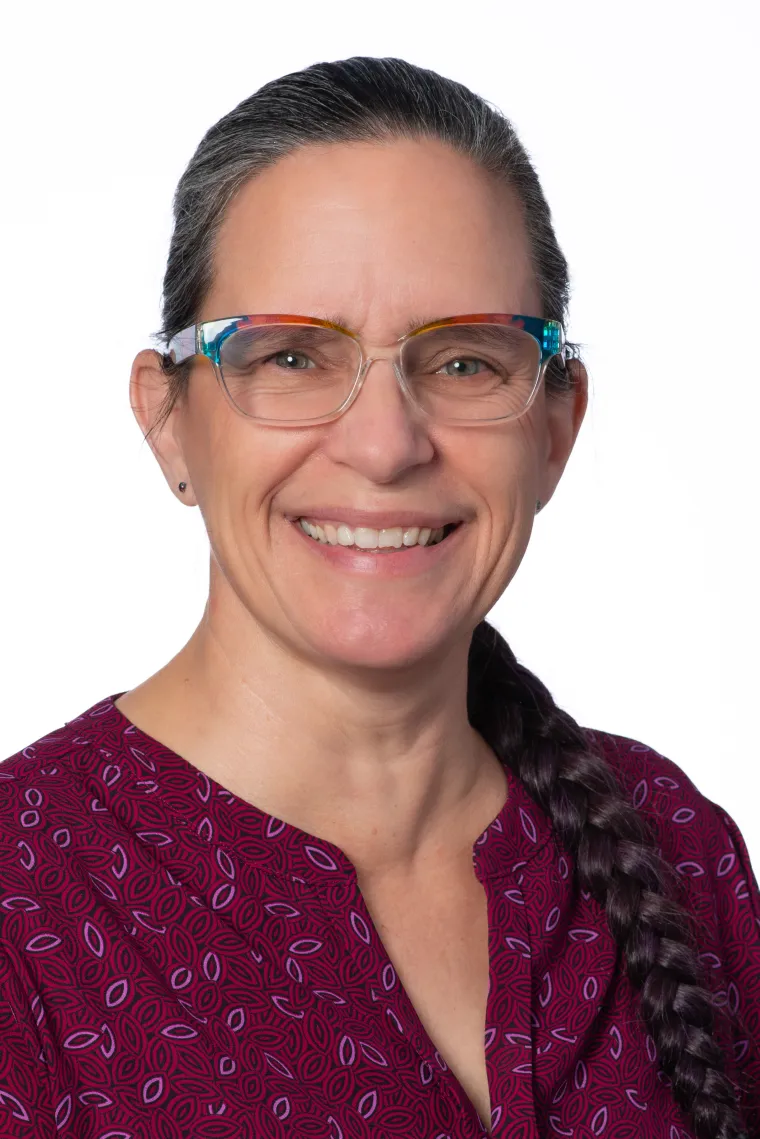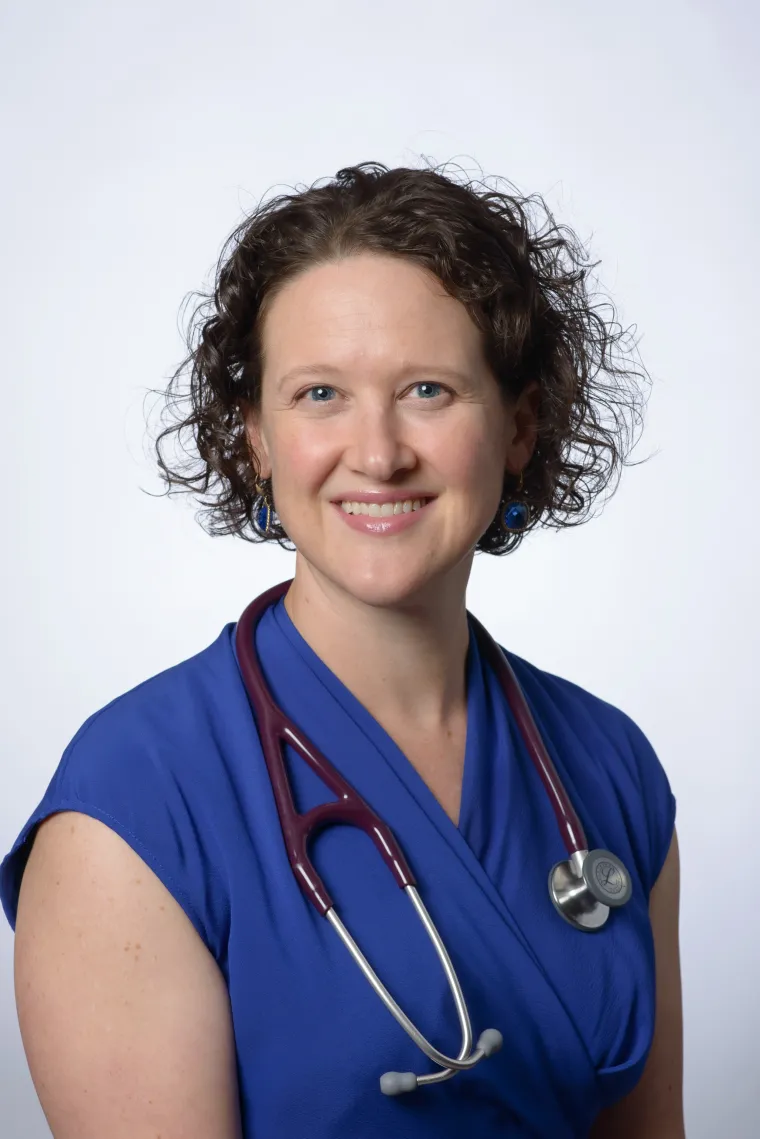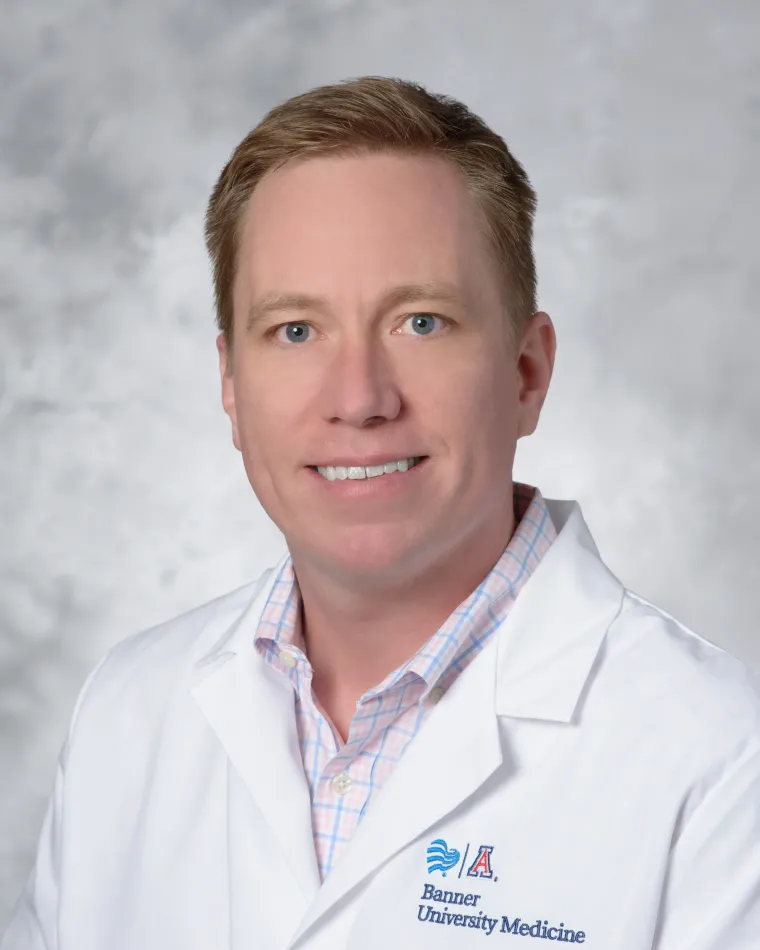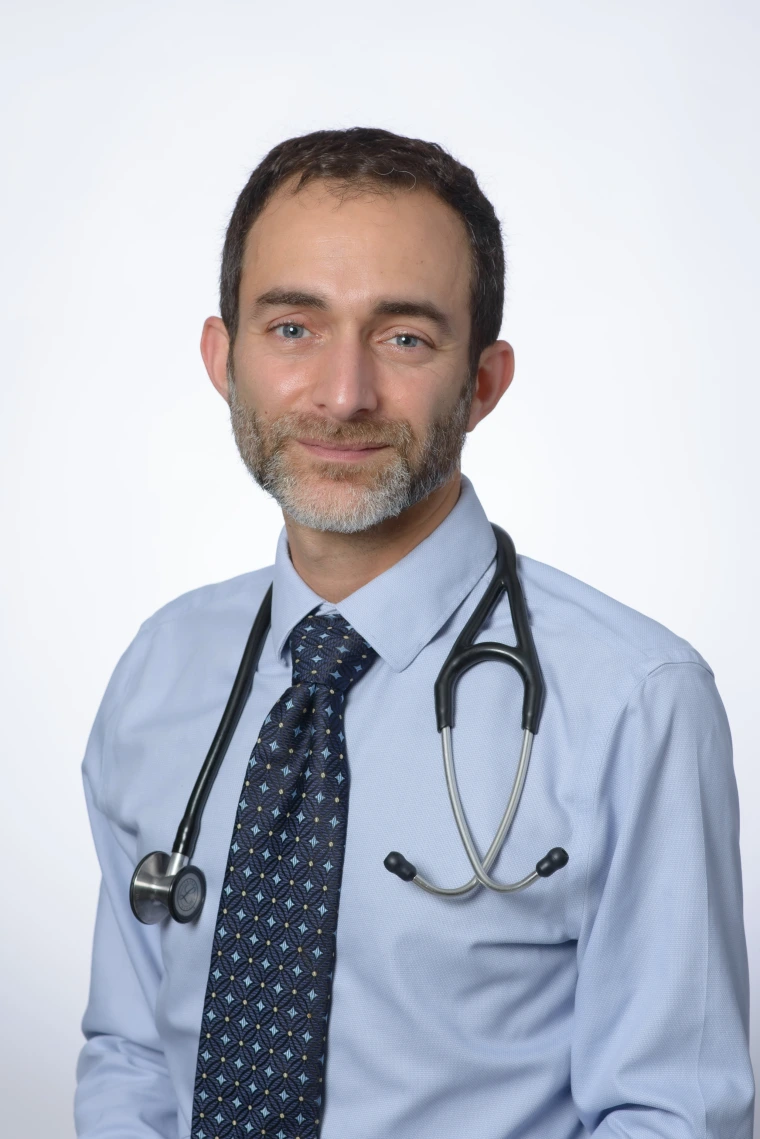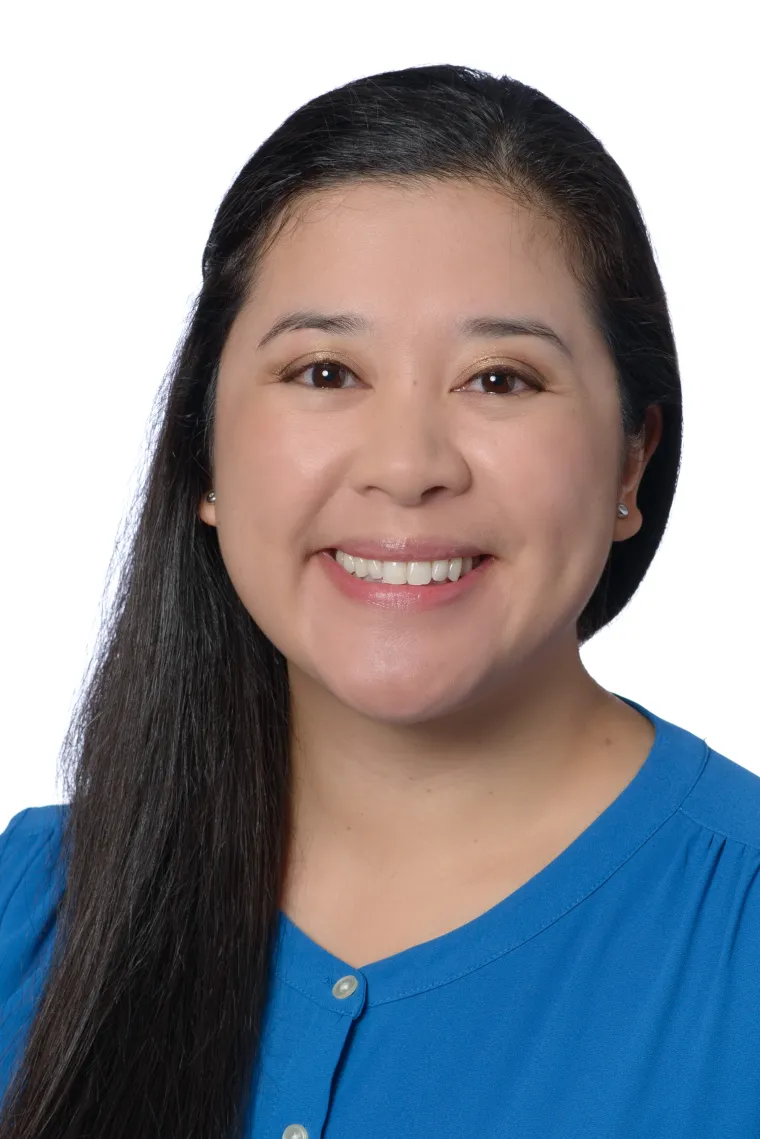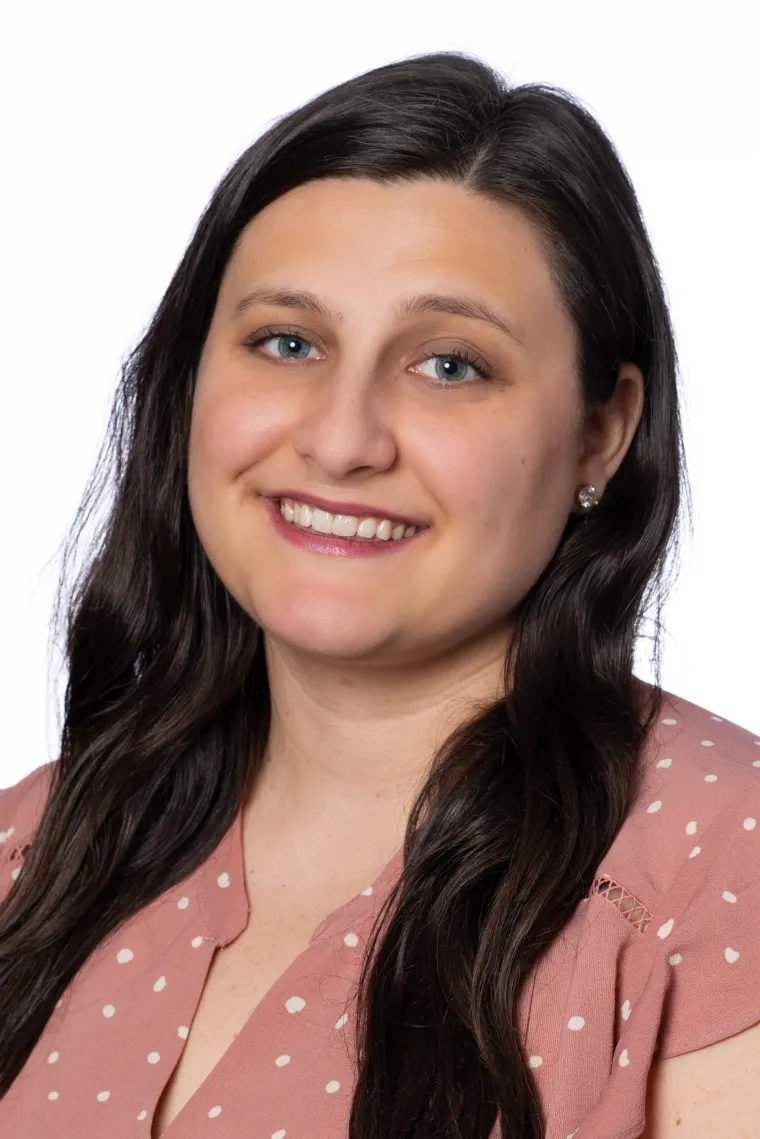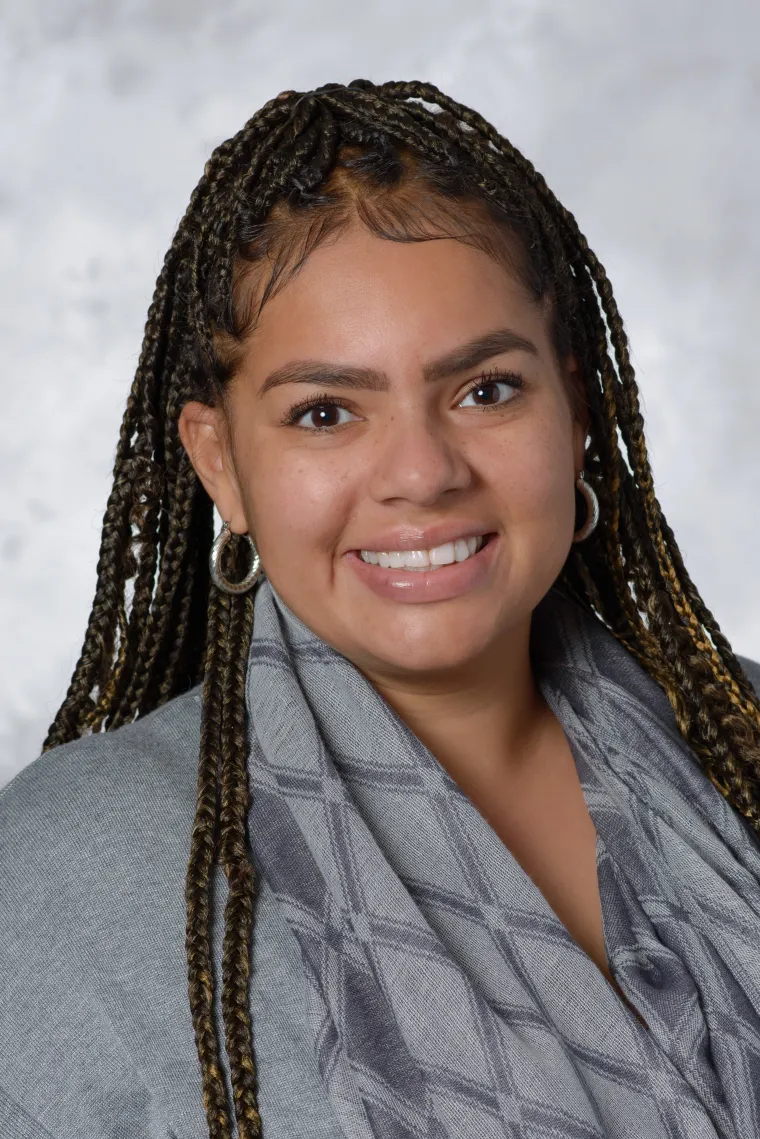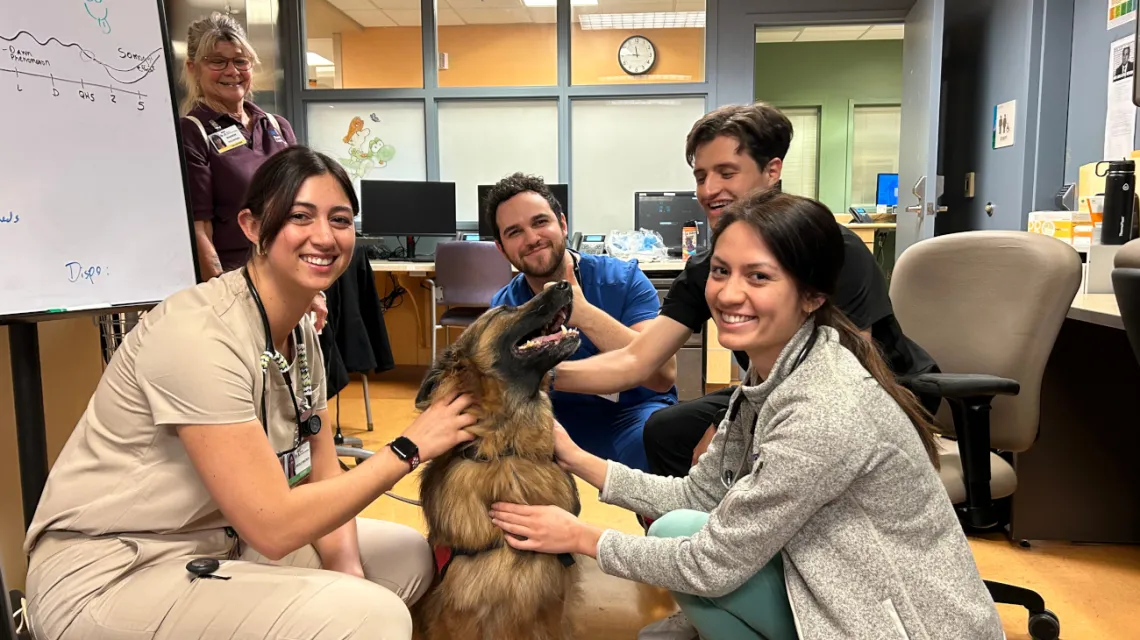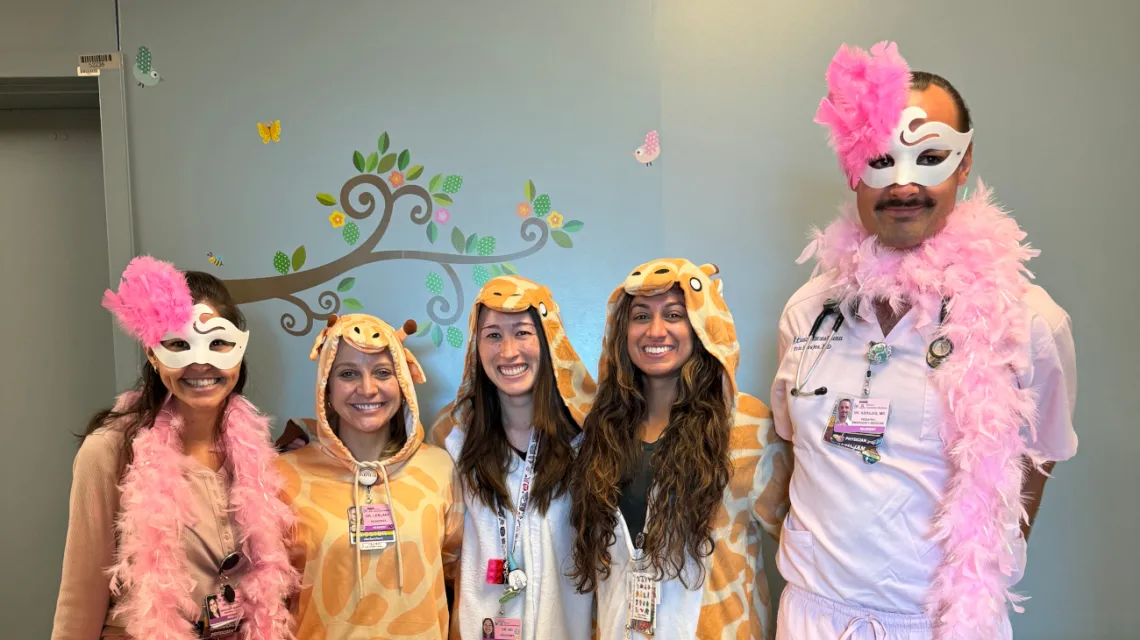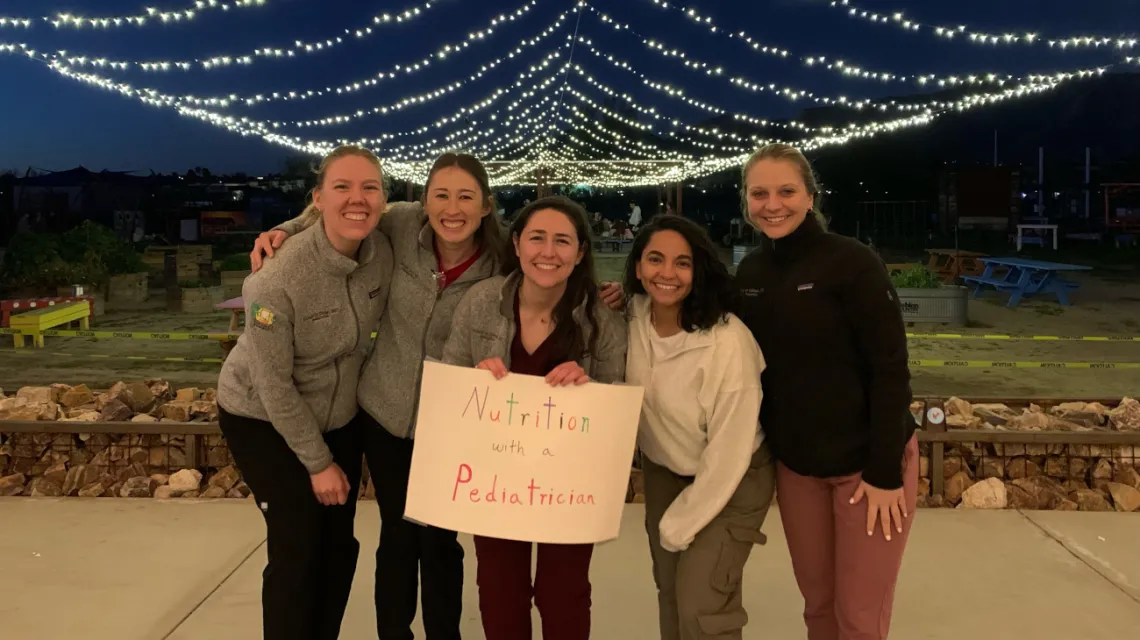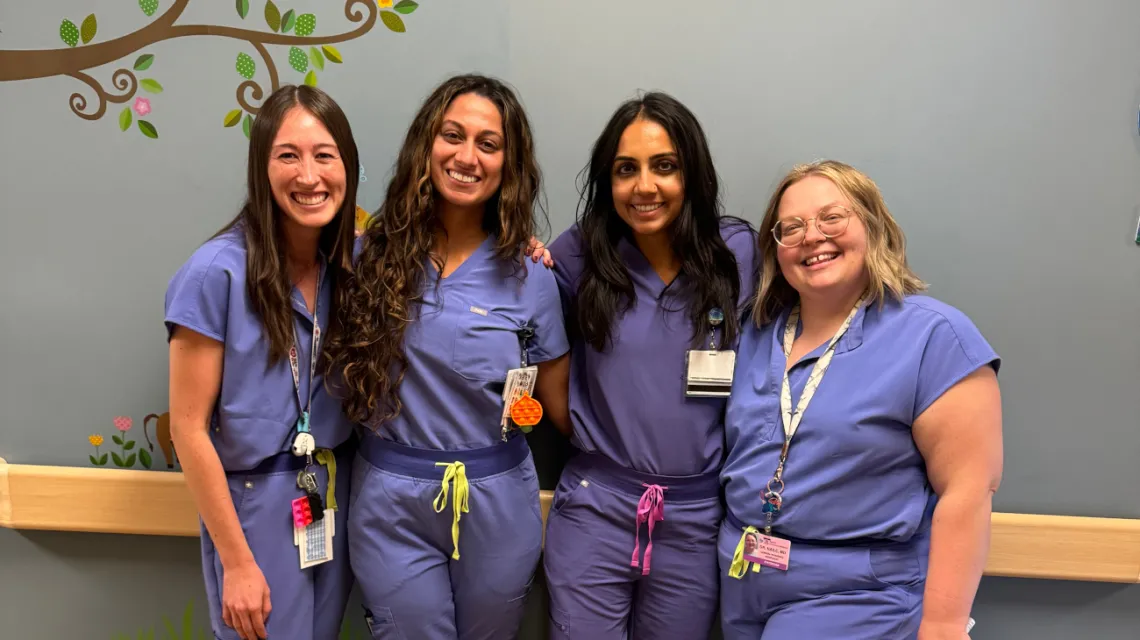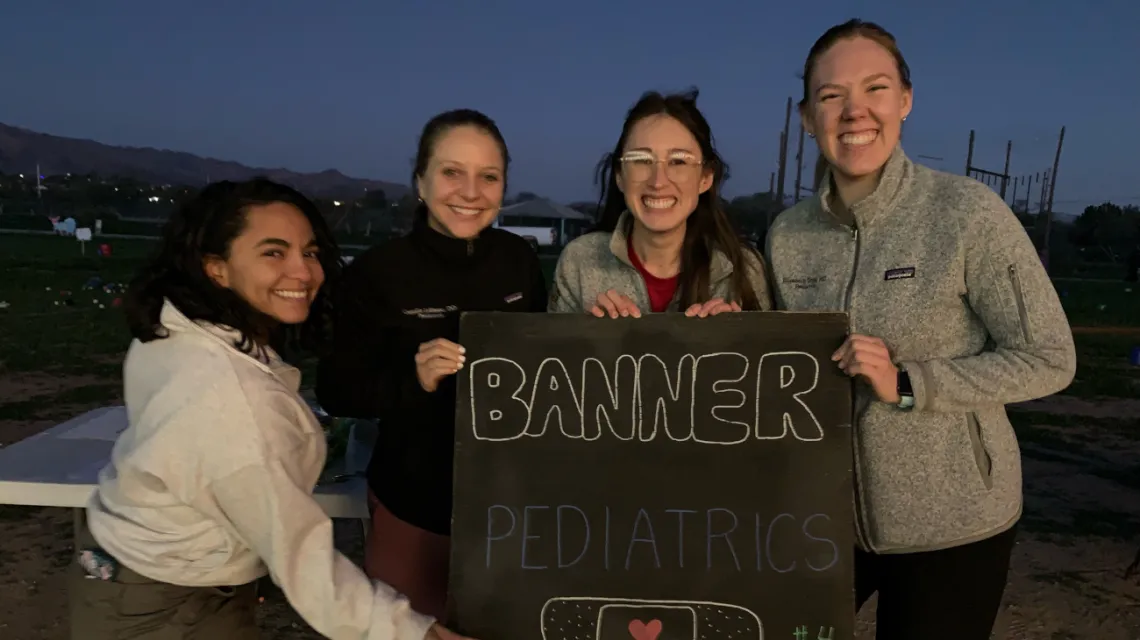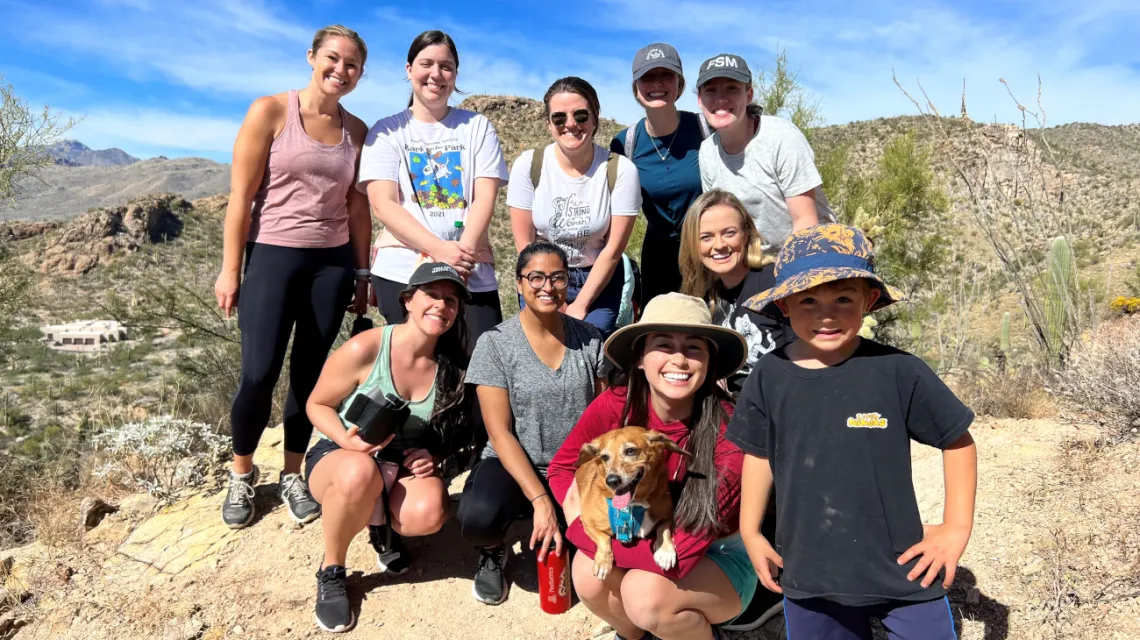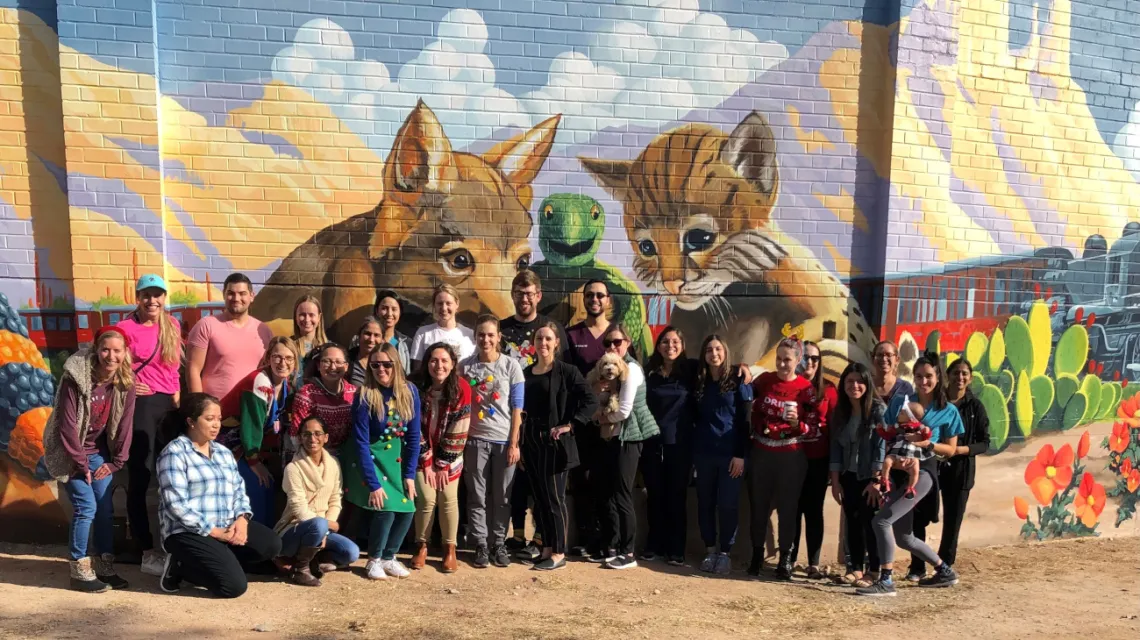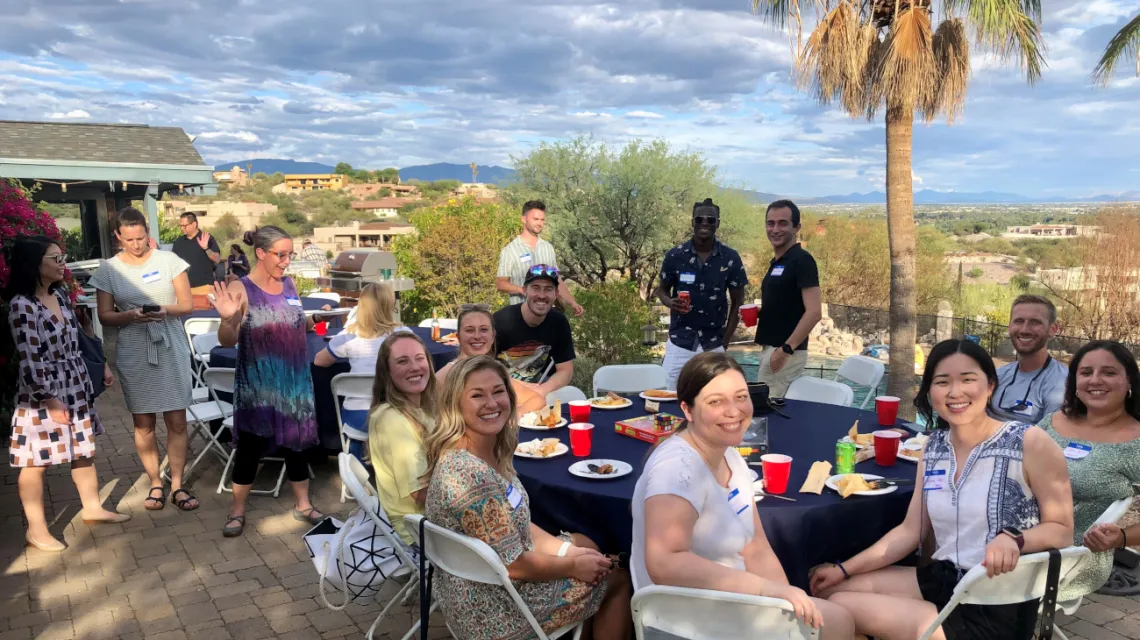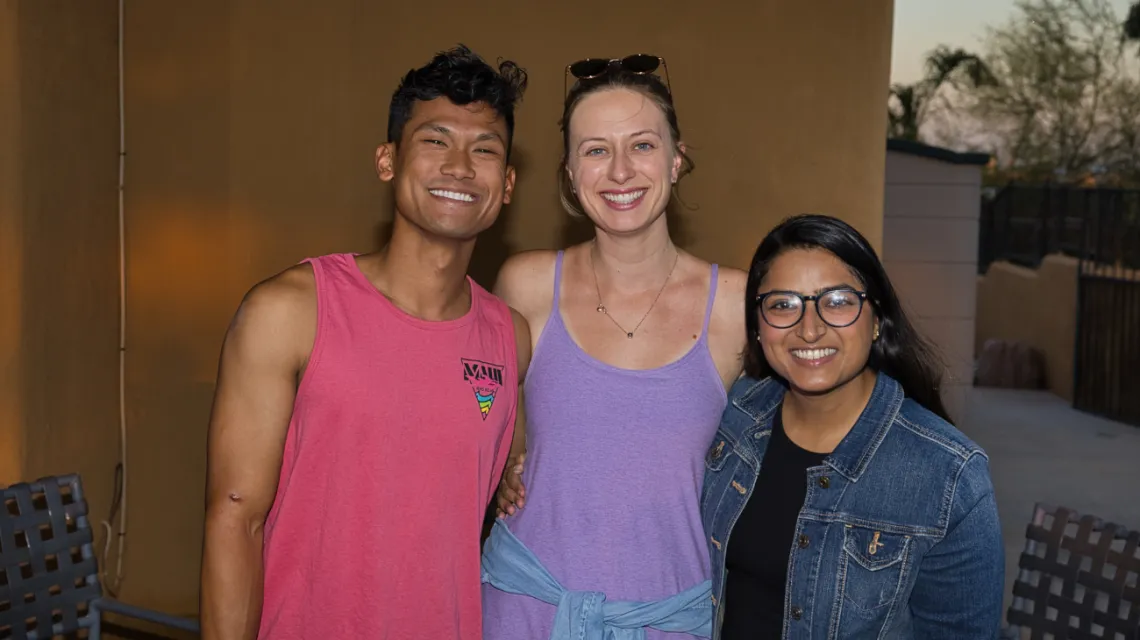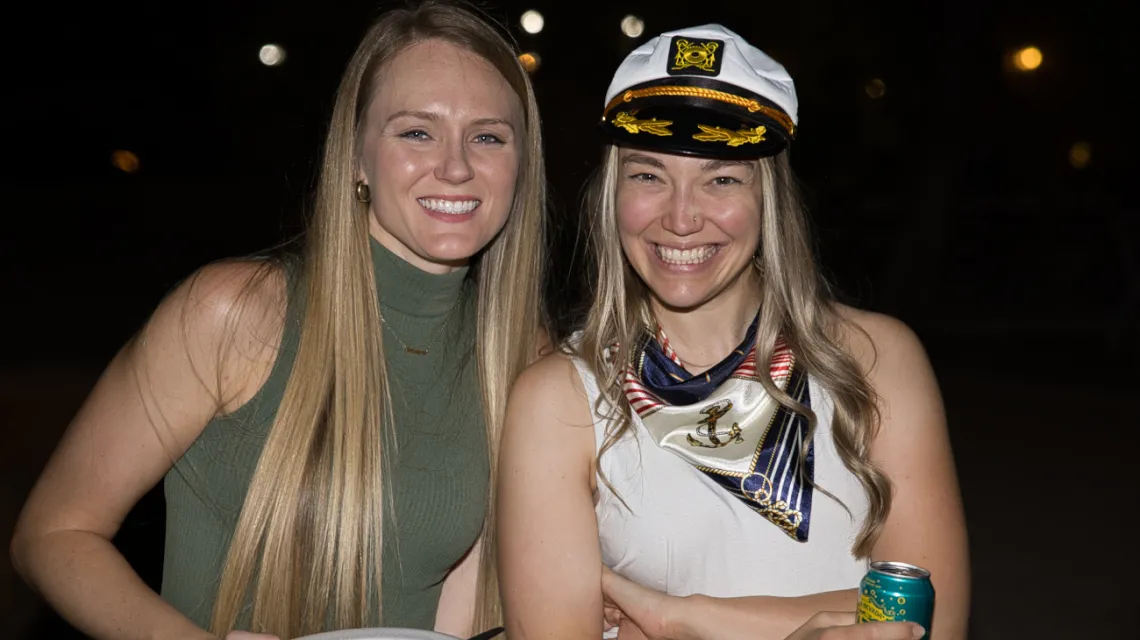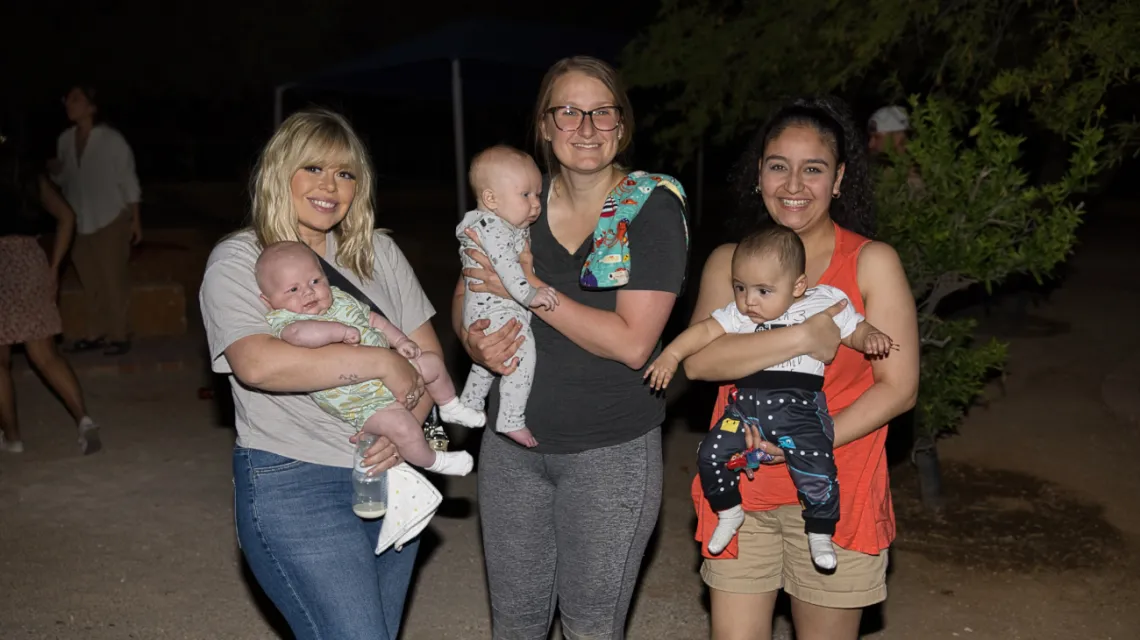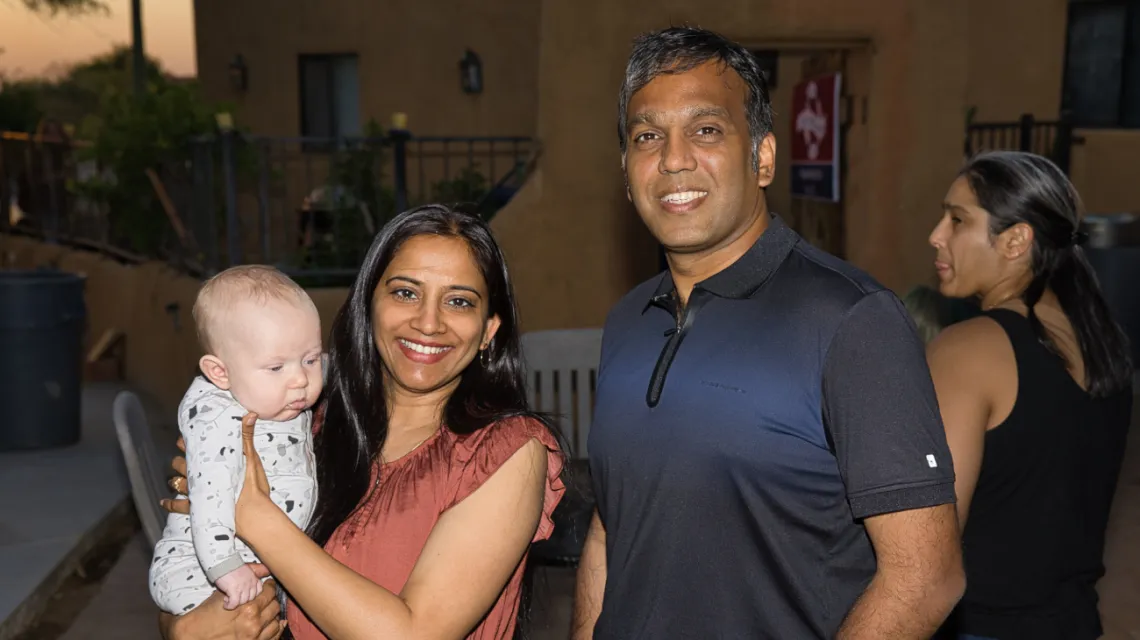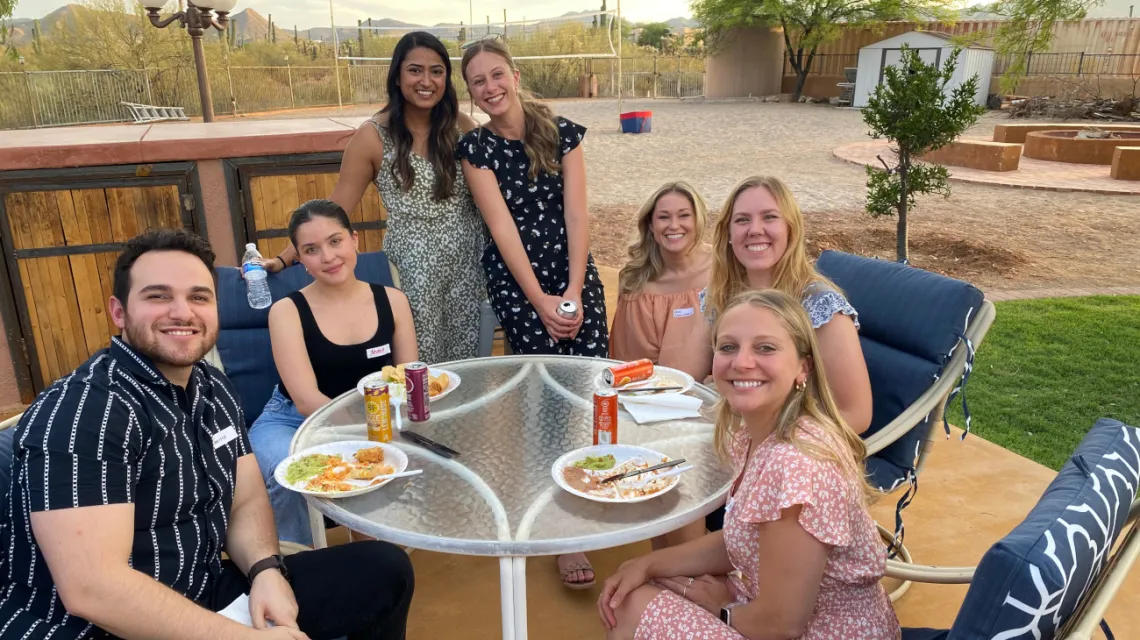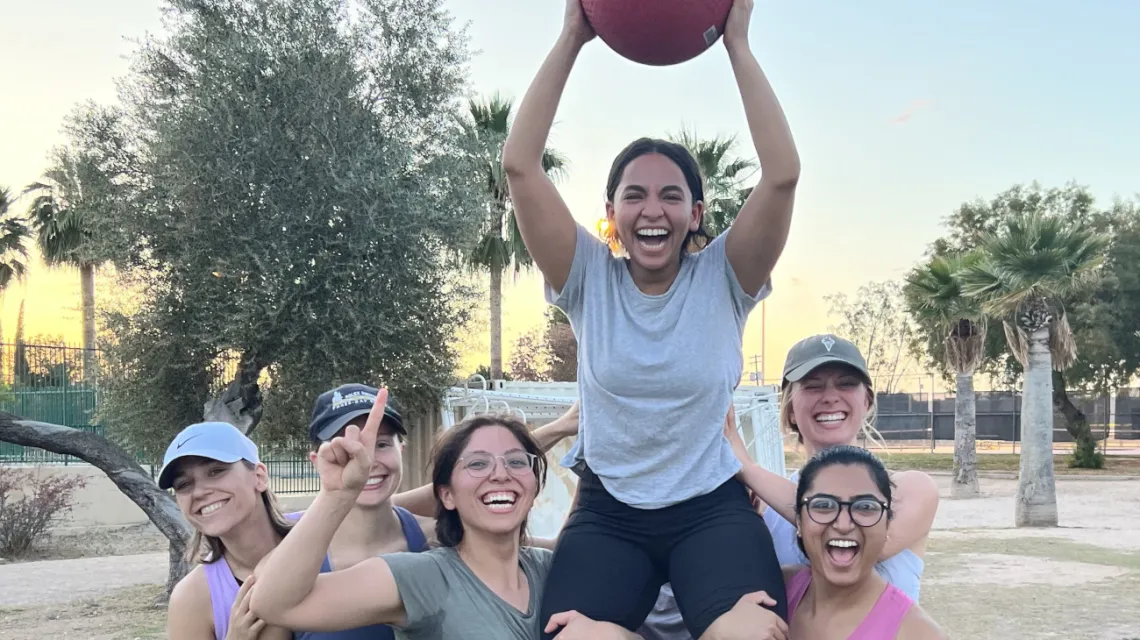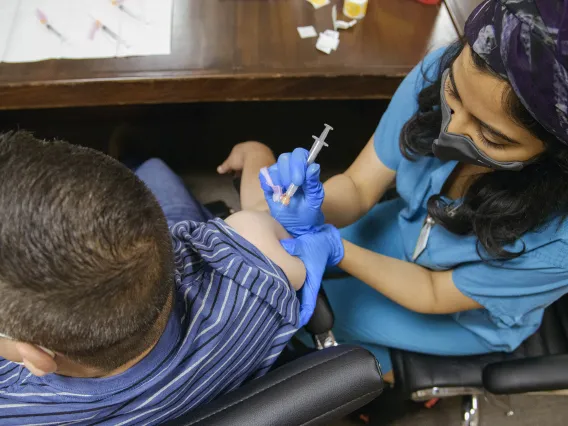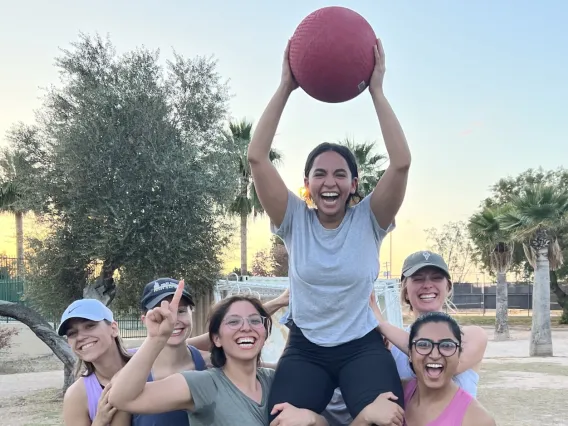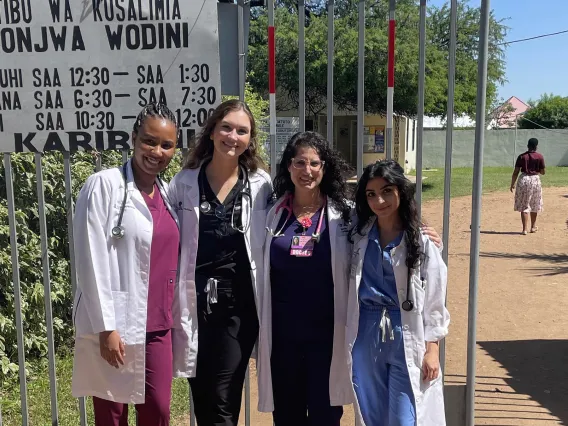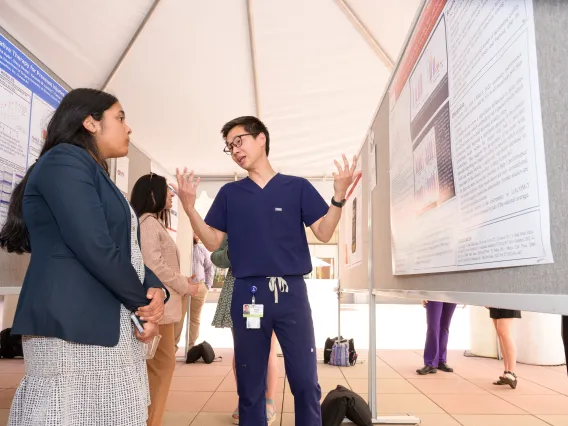Pediatrics
Residency Program
Welcome to the Pediatric Residency Program at the University of Arizona College of Medicine – Tucson! We are an academic residency program focused on training the next generation of pediatricians as expert clinicians, medical educators and researchers.
Our residents are at the heart of everything we do, with the common goals of educating the next generation of pediatric leaders, taking outstanding care of children, and striving for continued innovation and advancement of pediatric medicine. We are continuously learning from one another, and doing so in such a rich environment is an incredible joy.
Tucson’s proximity to the border and large pediatric population of immigrants and refugees provide a unique educational setting. Our program creates an atmosphere of inclusive excellence by fostering collaboration not just within the program and department, but also across southern Arizona. Our residents can complete rotations in the community and throughout rural Arizona at community health centers and with tribal health services.
From the start of their training, our residents are involved with scholarly projects and quality improvement, often culminating in publications and presentations at regional or national conferences.
We invite you to consider our program. Please contact any of us with your questions or if you want further information.
About Our Program
- We have an outstanding track record of successfully preparing trainees for fellowship positions, with many of our residents securing competitive subspecialty training slots at top training programs nationwide.
- Residents choosing to pursue careers in primary care are prepared to practice in urban, rural and international settings.
- Residents are paired with a faculty adviser who provides mentorship, guidance, feedback and friendship. Department faculty members are very approachable and always available for consultation, discussion and support, or just a quick chat.
- Protected teaching half-day, with a curriculum covering all American Board of Pediatrics Certifying Examination content specifications, in addition to programmed wellness activities, simulation labs, morbidity & mortality conference, journal club and board review.
- We prioritize trainee wellness and coordinate annual resident class retreats, resident night out and program-sponsored social events. We also have a wellness curriculum integrated into our academic half-day. The college offers free mental health services to all trainees.
- The Department of Pediatrics provides membership in the American Academy of Pediatrics, including PREP and Peds in Review, schedules annual resident retreats, and provides funding for conference attendance and presentations.
- International and rural electives are available to residents in sites of their choosing, with funding to help with travel expenses. Our residents have completed rotations in a variety of countries, with an emphasis on a combination of clinical care, research and language study.
- The Spanish Language Health Care Disparities Distinction Track is open for residents hoping to further serve Spanish-speaking populations.
- ArizonaLEND is a stipend-supported opportunity to learn more about neurodevelopmental and related disabilities.
The major site for all inpatient rotations is Diamond Children’s Banner – University Medical Center Tucson at 1625 N. Campbell Ave., Tucson, AZ 85719.
- Rotations in general and subspecialty ambulatory clinics take place at Banner – University Medical Center Tucson Children’s Multispecialty Center at 535 N. Wilmot Rd. Suite 101, Tucson, AZ 85711.
- Residents have the opportunity to choose to rotate at one of three sites for their longitudinal continuity clinic experience:
- Banner – University Medical Center North Hills: Our academic continuity clinic located at 265 W. Ina Rd., Tucson, AZ 85704, which is staffed by our academic pediatrics faculty.
- El Rio Clinic: A federally qualified community health center in Tucson.
- Community private practices: Private in the community with one of our alumni preceptors.
Our program cares deeply about the well-being of our trainees. We want our residents to thrive in their training environment and we recognize that medical training can be exhausting and challenging at times. We take ample opportunities throughout the year to recognize trainees’ hard work and celebrate their wins. Our approach to wellness focuses on giving time and space for fostering personal connections among trainees, so that our residents may build strong social support networks.
Resident Welcome Fiesta
During intern orientation, we celebrate our new interns with our residents, faculty, staff and their families with a Mexican fiesta hosted at a faculty home.
Ice Cream Social
Held at the tail-end of the academic year, this event serves as a farewell to our graduating residents as well as a hearty “hello!” to our new interns as they complete the last week of orientation before clinical work begins.
Class Lunches
Residents are dismissed from clinical services to attend an annual lunch out with their respective class cohorts at local restaurants.
Annual Residents Night Out
Once a year, our faculty cover all inpatient services so that all of the pediatrics and EM/peds combined residents have a night off together. The program organizes a dinner and the trainees participate in fun events like a resident roast, where the junior classes roast the graduating seniors.
Resident Class Retreats
Each resident class has a designated retreat weekend, where the class is relieved of clinical duties to participate in professional development, team building and wellness activities. These funded retreats include educational activities and social events such as hikes, picnics, BBQs, climbing events, escape rooms and other team-building activities. We feel it is crucial for our residents to have opportunities to engage and have fun together outside of work to balance some of the inevitable stress that comes with medical training.
Graduation Celebration
The Department of Pediatrics hosts a graduation celebration for the pediatrics and combined emergency medicine/pediatrics graduates as well as the pediatric subspecialty fellows. This event gives the graduates an opportunity to celebrate with their families, mentors and continuity preceptors. It is a joyous event to recognize the efforts of the graduates as we send them off with pride to the next stage in their careers.
All of the following materials must be submitted to ERAS:
- ERAS application
- Three letters of recommendation
- Dean’s letter or MSPE
- Official transcripts from medical school
- USMLE or COMLEX score reports
Any gaps greater than 30 days between graduation from medical school and start of training need to be explained in the application. To be ranked, the applicant must have successfully completed either USMLE 1 & 2 or COMLEX 1 & 2. All applications with passing scores will be considered. Applicants must be ECFMG-certified to participate in the ranking process after interview season. Documentation of the applicant’s ECFMG certificate is required prior to July 1 of the start of residency.
For International applicants: We only sponsor J-1 visa applicants.
Curriculum
PGY1
Wards: 12 weeks
Night float: 4 weeks
ED: 4 weeks
NICU: 4 weeks
Adolescent: 4 weeks
Behavioral health: 2 weeks
Newborn nursery: 2 weeks
General ambulatory: 4 weeks
Ambulatory subspecialty: 4 weeks
Individualized subspeciality electives: 8 weeks
Vacation: 4 weeks (in 2-week periods)
PGY2
Wards: 4 weeks
Night float: 4 weeks
ED: 4 weeks
NICU: 4 weeks
PICU: 4 weeks
Development: 4 weeks
Heme onc: 4 weeks
General ambulatory: 4 weeks
Individualized subspeciality elective: 4 weeks
Individualized research/QI: 4 weeks
Individualized other electives: 8 weeks
Vacation: 4 weeks (in 2-week periods)
PGY3
Wards: 4 weeks
Night float: 2 weeks
ED: 4 weeks
PICU: 4 weeks
General ambulatory: 10 weeks
Newborn nursery: 2 weeks
Behavioral health: 2 weeks
Individualized subspeciality elective: 10 weeks
Individualized CCE: 4 weeks
Individualized other elective: 6 weeks
Vacation: 4 weeks (in 2-week periods)
Teaching Day
We offer four hours of protected educational time for all pediatric residents every Wednesday, featuring a system-based model of instruction with lectures from attending and visiting faculty. Faculty provide in-depth teaching on pediatric content topics and issues specific to their subspecialty, and specific to the ABP Board specifications in interactive didactic sessions. The 18-month revolving format of the curriculum allows residents to experience the didactic curriculum twice in full during their training.
Board Review, Morbidity and Mortality Conference, and Journal Club are resident-led sessions occurring during teaching day, where housestaff gain valuable experience in lecture preparation and public speaking in a friendly environment.
The teaching day also incorporates resident wellness sessions, quality improvement education and procedural simulation sessions.
Attending physicians cover all services during this protected educational time.
Morning Report
Morning Report is held three mornings per week. Students, housestaff and pediatrics faculty discuss interesting and complex patient cases.
Ambulatory Pediatrics Curriculum
During the ambulatory pediatrics rotation and continuity clinic half-day sessions, residents participate in in-person, case-based discussions. These discussions cover common general pediatrics topics that offer a mix of boards-related content and practical clinical pearls, using the Yale Primary Care Pediatrics Curriculum and Mt. Sinai Keystones of Development. These occur three days a week during the ambulatory rotation and daily for continuity clinic.
Pediatric Grand Rounds
Pediatric Grand Rounds is a bimonthly lecture series that focuses on current developments in pediatrics and is presented by local and visiting experts.
Pediatric Journal Club
Residents critically review journal articles using an evidence-based medicine (EBM) approach.
Morbidity and Mortality
Morbidity and Mortality is a monthly conference designed to analyze adverse outcomes in patient care through inter- and intra-departmental peer review. Residents select, prepare and present cases with faculty mentorship.
Board Review
Board Review lectures are given by senior residents during teaching days throughout the year to improve resident knowledge in assigned pediatric content areas, in preparation for the American Board of Pediatrics Certifying Exam.
Simulation
A formal high-fidelity simulation curriculum is completed by residents throughout their training. Additionally, residents participate in mock codes and other simulation training including procedural practice.
The Department of Pediatrics hosts an annual CME conference for physicians and allied health providers featuring speakers from diverse specialties and care delivery settings. The conference aims to educate on updates and advances in clinical subspecialty care, as well as exploring topics of community health, tribal and rural health, and public health. Our featured speakers range from the legal sector to pediatric experts in their respective fields. The aim of our conference is to provide valuable education while fostering our community and ultimately improving pediatric care in Arizona. We feel thankful that we have been able to provide this service for over two decades. Residents are encouraged to attend this popular event, which is free for them!
Residents at Play
Click the photos to advance the slideshow!
Graduate Medical Education
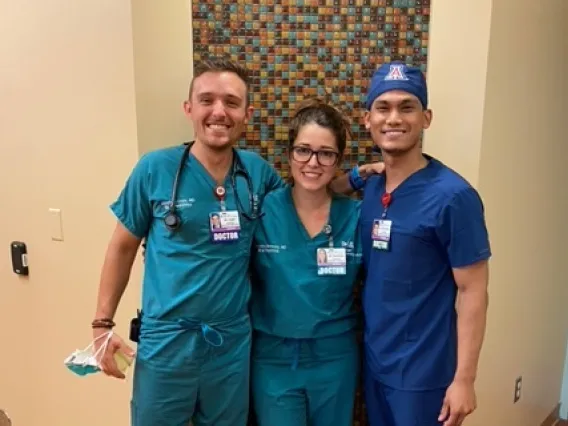
This five-year program is approved by the American Board of Emergency Medicine and the American Board of Pediatrics.

Learn more about the residency and fellowship programs at the College of Medicine – Tucson.
Training in Tucson
Contact


